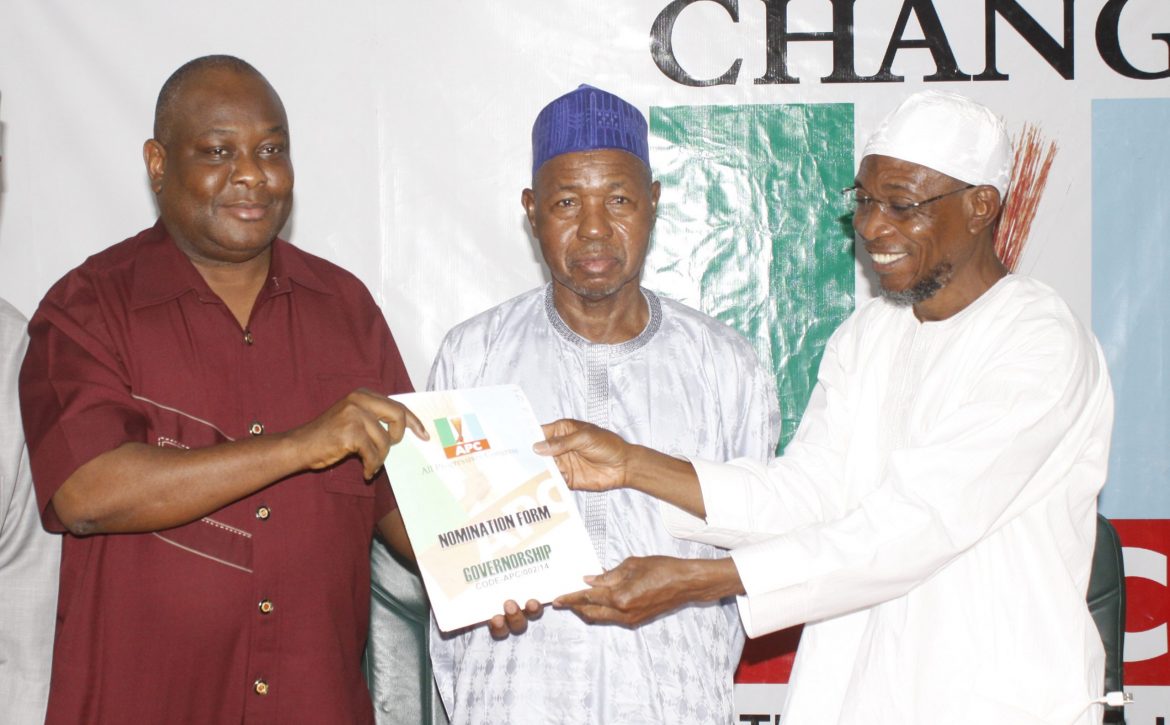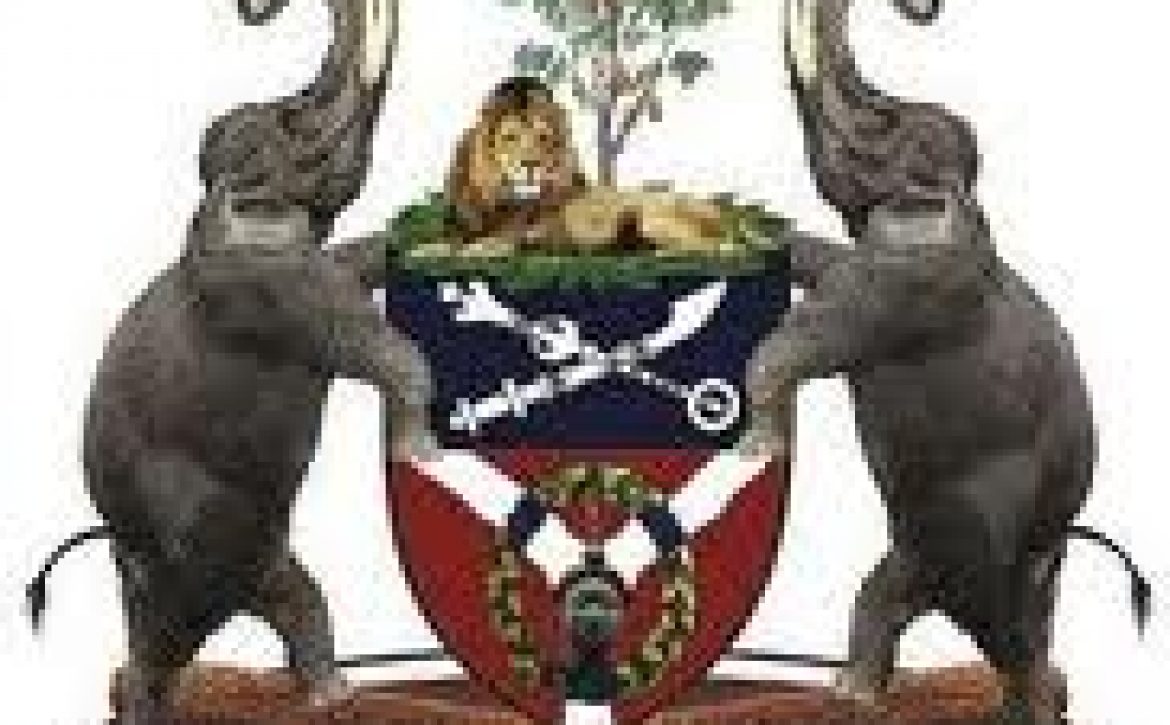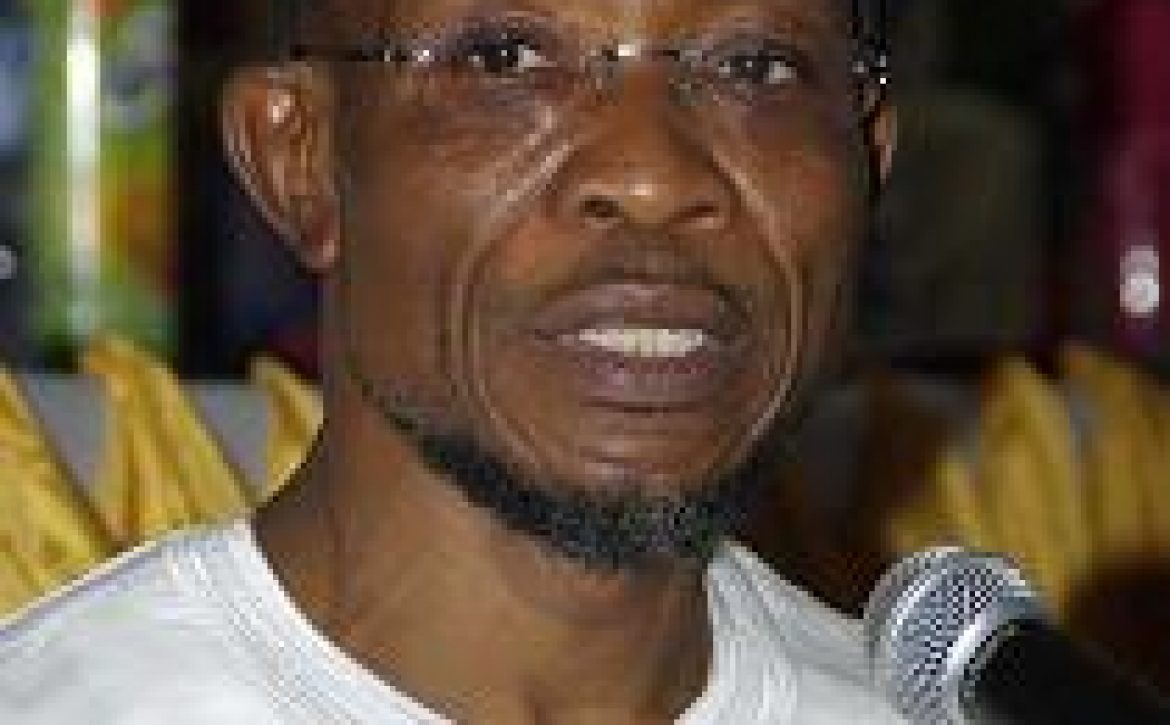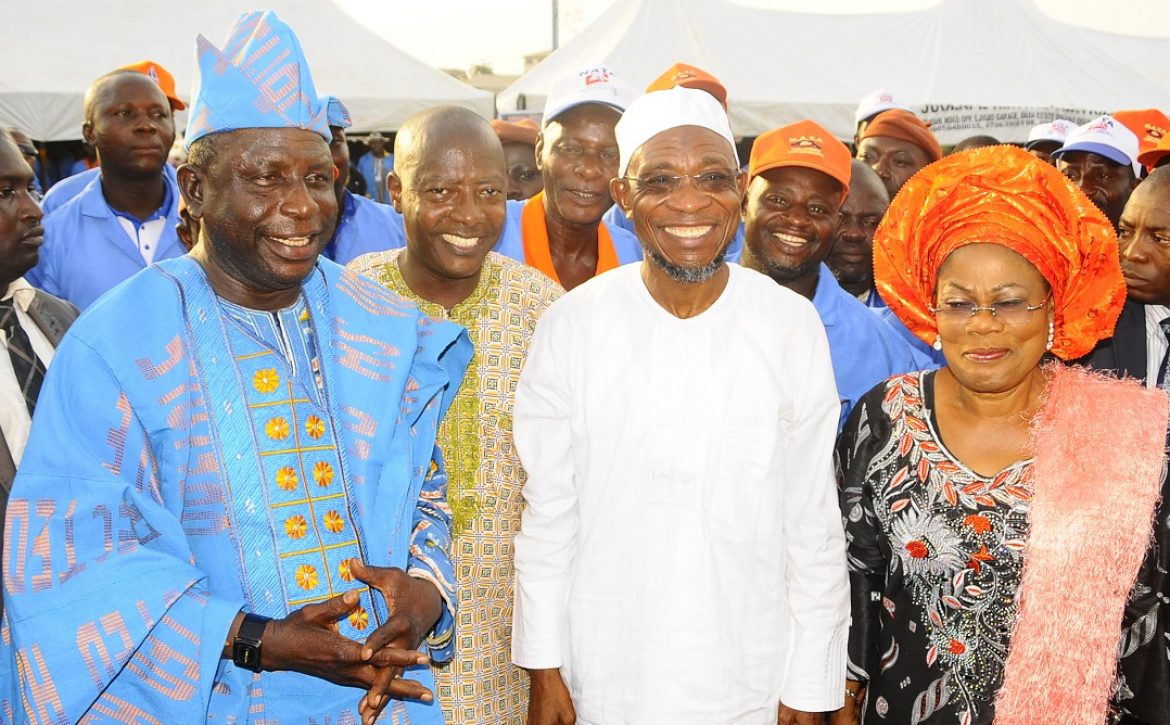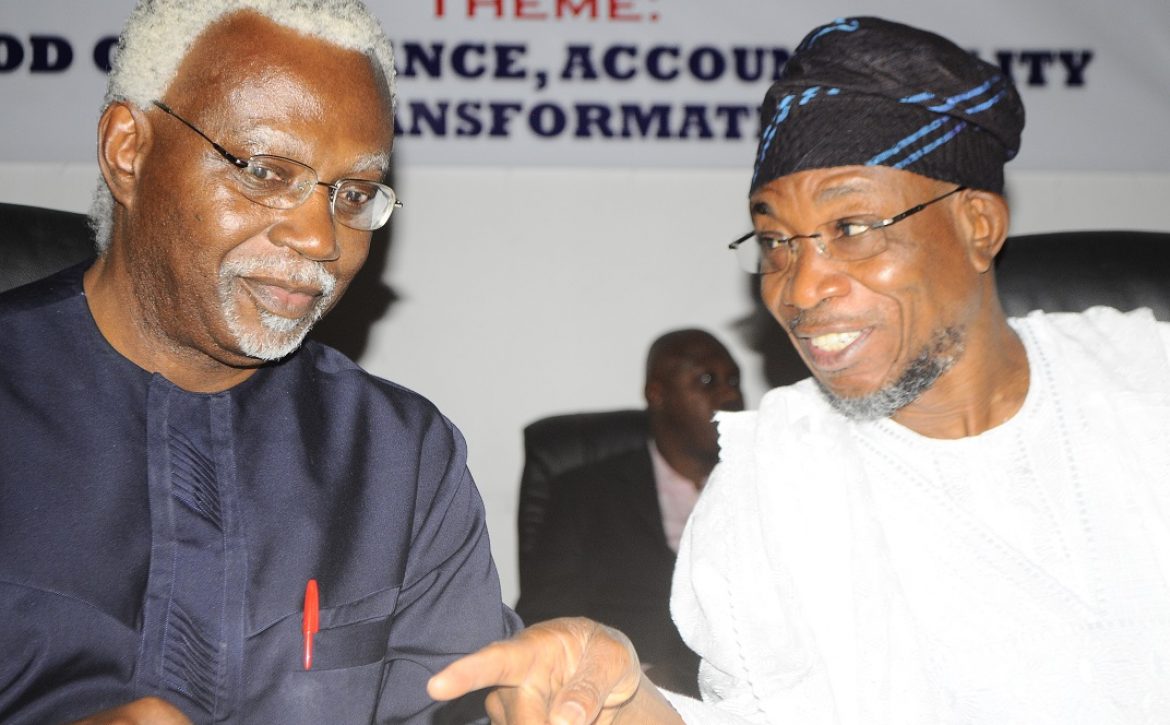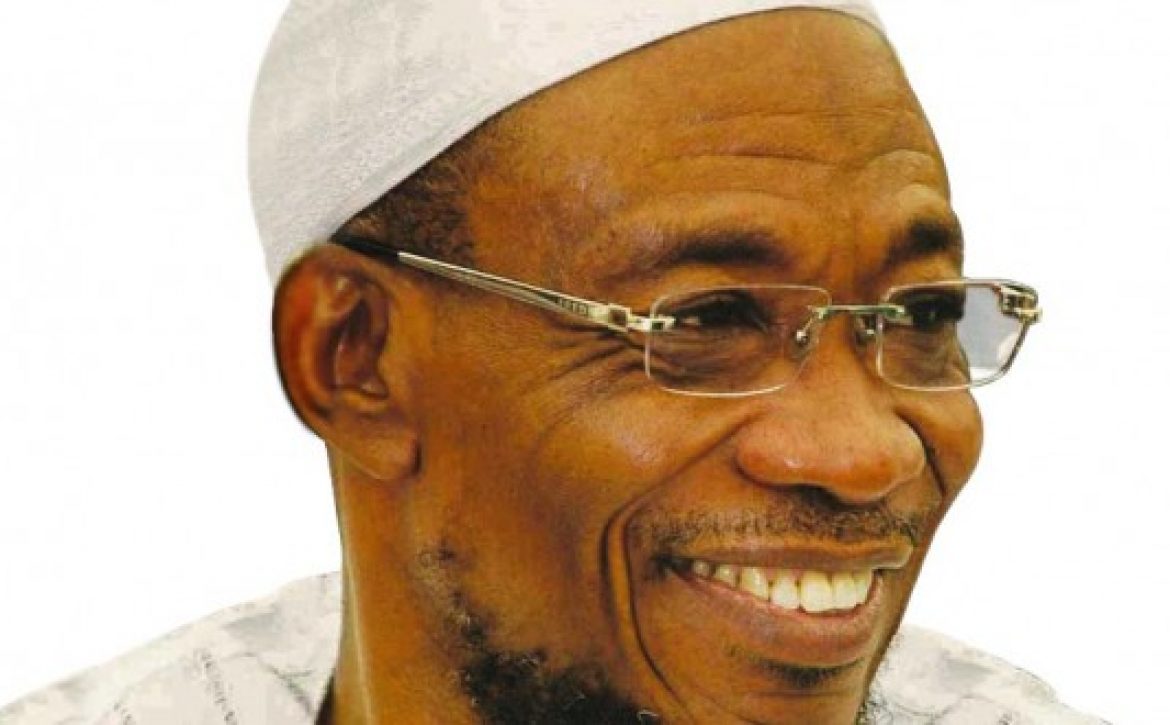As 2015 general elections draw nearer, Nigerians have been told to exercise their democratic duties and rights by voting out governments that give excuses for non-performance. This was the submission of Osun State Governor, Ogbeni Rauf Aregbesola, when he delivered a lecture on “Governance, Accountability and Transformation,” at this year’s first quarter Independent Corrupt Practices and Other Related Offence Commission (ICPC)’s Good Governance Forum, held at its auditorium on Tuesday, March 11.

Aregbesola who was specifically invited through a letter dated 21st February, and issued and signed by the commission’s Chairman, Hon. Ekpo Nta, to deliver the lecture to share his experiences with other notable Nigerians who are in positions of authority concerning the programmes and policies of his government aimed at alleviating and eradicating poverty and impacting on the living standard of the people of Nigeria.
Nta indicated in the letter addressed to Aregbesola that his invitation to deliver the lecture was based on the unanimous decision of the commission’s board; public opinion and empirical evidence attesting to the transformation of a hitherto wholly-agrarian state to a fast growing industrial and education-oriented state.
Aregbesola observed that many governments, including the federal, are lazy and unimaginative in their approach to governance. He remarked that governance was not a lazy business, and that what the nation lacked at present was quality leadership that would pilot the country to the Promised Land.
He specifically said that many governments always wait for the monthly federal allocation which in most cases is barely sufficient to pay salaries, adding that because the federation account allocation is more of an unearned rent, it is spent as freebies which provides an impetus to corruption.
Osun State Governor advised that every state, including the Federal Government, should strive for financial autonomy and self-sufficiency, maintaining that the federal allocation should not be used for paying salaries and running government but should be tied to specific development projects.
He said: “Governance is not a mystery. There is a science and art of it and it can be mastered and we should begin to demystify it by rejecting the notion that we can only have good and qualitative governance in the next millennium. We can have it now and we should demand for it. We have heard of the successes of the Asian Tigers and the newly industrialised countries of South America. We don’t have to reinvent the wheel. There is never a time when there will be no excuse for failure. The good thing about democracy is that it periodically provides opportunity for us to kick out a government that offers excuses all the time and blame others for its failure. If we can take the science of governance and public administration, we can follow the path they took and have even more resounding success.
?It has become a cliché that we need quality leadership. I am afraid that this is a necessary but not a sufficient condition. The corollary of it is that we also need good followership ? a followership that consciously put the right leadership in place; that will make extraordinary demands from the leaders; and will hold leadership to account. It is the implosion of the two factors of good leadership and quality followership that will bring about the transformation that we so desire. I am therefore confident that given our trajectory as a nation and the progress we have made since 1999, we are going to arrive at the destination. Of course, democracy anywhere is an unfinished business.”
He added: “I would wish that the socio-economic development of the people be made a constitutional imperative. Their provision should not just be an inspirational reference in the constitution; they should be made compulsory and justiciable. That the government must provide jobs, education, healthcare services, public infrastructure and so on should be made compulsory in the constitution. This will not only put the leaders under the burden of governance delivery, it will also minimise corruption since there can never be enough money to deliver on all requirements.
“I have ongoing projects worth at least N60 billion and yet my allocation from the Federation Account fell by 40 per cent. We have had to commit the last kobo in our coffers into paying salaries and fulfilling our obligations to our contractors such that we cannot even afford frivolities and indulgence of corruption.
“When we came in a little more than three years ago, we knew we had to provide jobs immediately for our teeming youths. We had to discard the neo-orthodoxy economics that frowns on public sector employment and adopt the position of Lord John Maynard Keynes, the influential 20th Century British economist, who advocated the creation of public sector jobs as the panacea for the great depression and the unemployment brought about by two world wars. That was what saved Europe and America from economic collapse at the time.
“We immediately employed 20,000 youths in less than 100 days of our administration on the platform of Osun Youth Empowerment Scheme (OYES). After two years, we gave then soft landing into formal employment and self-employment in different vocations. This programme to a large extent has informed the conceptualization of the (Youth Empowerment Social Support Operation (YESSO) by the World Bank, which is now replicated in 18 States in Nigeria.
“We have since employed another set of 20,000, driving unemployment to its nadir and giving Osun the status of the state with the least unemployment figure, according to the Bureau of Statistics and other credible agencies.
“Our other area of high impact is in education. Education, for us, is not just a social gathering after which a bland certificate will be issued. We were indeed alarmed after our inauguration that less than five per cent of secondary school leavers in Osun had the requisite pass for matriculation into tertiary institutions. Teachers were demoralised, the school environment was unfit for animals and the pupils were growing wild. We immediately held a summit on education with participants including stakeholders like Prof Wole Soyinka.
“We are not just redefining the learning environment, we are now redefining education as the development of the total man spiritually, morally and intellectually, a man whose development must cohere with the development of his environment and fellow men. Thus, we are building brand new 13 elementary schools, 14 middle schools and 12 high schools and so far we have committed N14.4 billion to it.
“We are also feeding our pupils in elementary schools (Primary 1-4), giving them nutritious meals every school day. We also pioneer the e-learning tablet, Opon Imo, that contains all the textbooks for secondary school, past questions of WAEC, JAMB and NECO and tutorials. This has never been done before anywhere in the whole world. To properly indigenise it, we have set up a factory in Ilesa for its manufacture. Our investment in education is already yielding good results. There is a 40 per cent increase pass in the last SSSCE conducted in Osun.
“We are not deterred that our detractors, mortally afraid of our success in this area, are raising storm in a tea-cup by shifting the focus of our reform, imputing religious motives and fictively invent a religious crisis when they could not rouse one.
“We are constructing roads, but not just for its sake. Roads are an integral part of our transportation infrastructure development. We target roads that impacts more on the economic and social lives of the people. We have at the last count constructed almost 600 kilometres of inter-city, intra-city and local government roads in three years, almost five times of what previous administration did in eight years.
“Our empowerment programme is not for the youth alone. We also have support and empowerment programmes for the weak and vulnerable like the handicapped, the aged, widows and single mothers, lunatics and the vagrant.
“One important area in which we have been outstanding is in agriculture. It is our philosophy that food constitutes an integral part of national security. A government that cannot feed its people has failed to provide an important aspect of their security. Through the agency of Osun Rural Empowerment and Agriculture Programme (OREAP), the Ministry of Agriculture and Food Security and other agencies, we have been able to redirect the focus of our people on agriculture, especially food crop production.”
Aregbesola, however, lamented that finance remains the most troublesome aspect of governance under his administration, saying that “there can be no governance without financial capability”. If the slogan of the American Revolution, as penned by James Otis, is ‘Taxation without representation is tyranny’ then permit me to invert this to ‘Representation without taxation is administrative emasculation’. When our administration came in, our internally generated revenue was a paltry N300 million. In less than one year, we doubled it to N600 million; by the grace of God today, it is N1.6 billion. Our target is to be able to raise N5 billion on our own every month.
“We have had the democracy-governance nexus practically demonstrated in the State of Osun where I preside as governor and several other states where progressives are in control. Indeed, while the governance situation in the country generally fills me with a sense of sobriety; what we have achieved in Osun gives me a sense of optimism that, with accountability and transparency in leadership, the machinery of governance can be used effectively to overcome our national malaise; to cage the monster of corruption; and to transform the fortunes of our nation and our people.”
DAILYIDEPENDENT







